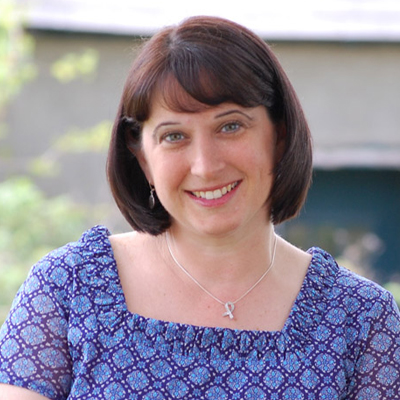It Stopped Going Well: Penny’s Story
“I sat in the waiting room after my mammogram. One by one, the other women in the room had their mammograms and left, but I didn’t. The technician kept calling me back for more views, and I was starting to get nervous. Then she called me in for an ultrasound,” says Penny Ackerman, brushing aside her black bangs.
“Finally, when there was almost no one left, the radiologist came to talk to me, and said, ‘Do you know what DCIS is? I think you have it.’”
Ductal carcinoma in situ—and 36-year-old Penny Ackerman had it: Stage 1 breast cancer. She felt gob-smacked. She hadn’t been worried about the mammogram her gyno had ordered because her gyno wasn’t worried. But now, Penny was.
But here she was, going for a biopsy at the end of June, two months after noticing that her breast was unusually tender as she was about to take a shower.
She moved fast, quickly lining up a breast surgeon for a consultation. He was reassuring, saying that 80% of biopsies are benign. The days of that week and the months that followed stand in stark relief: Tuesday, a biopsy; Wednesday, a phone call with the surgical oncologist; Thursday, an MRI of the breasts; Friday, an appointment with the surgical oncologist again to discuss surgical options. Monday, an appointment with the recommended plastic surgeon who would do reconstructive surgery during the cancer surgery.
At the end of August, the day her five- and eight-year-old children started their school year, Penny started radiation.
But it was going well; her parents stayed at her house to help her, her kids, and her husband. She could do this. Her family could do this.
And then it stopped going well.
For when Penny’s mom saw her own gynecologist for a routine visit, it turned out that she, too, had Stage 1 breast cancer. It was September, three months after her daughter’s diagnosis.
“It was scary because we all thought of the BRCA gene, linked to hereditary breast and ovarian cancer,” says Penny.
“Because I developed cancer in my 30s, my daughter and niece will need to be tested in their 20s,” she says matter-of-factly.
But how matter-of-fact can a person really be about cancer? Cancer isn’t just about the body. It’s about the mind, too. How do you regain that sense of control you used to have? How do you learn to manage your care? How do you continue to feel normal and hopeful?
Penny joined support groups at the Cancer Support Community, including healthy cooking classes and the Look Good, Feel Better series.
Things righted themselves. She had very few side effects from radiation. “Maybe it was because of a positive attitude,” Penny muses. “I love this place, and I love what it does,” she smiled, brushing her hand across her dark bangs again.
“The hardest part for me was not being able to help my mom. I’m a hospice nurse; I’m used to taking care of people. But my friend was recently diagnosed with breast cancer, and I’m able to support her. And it means a lot to me.”


